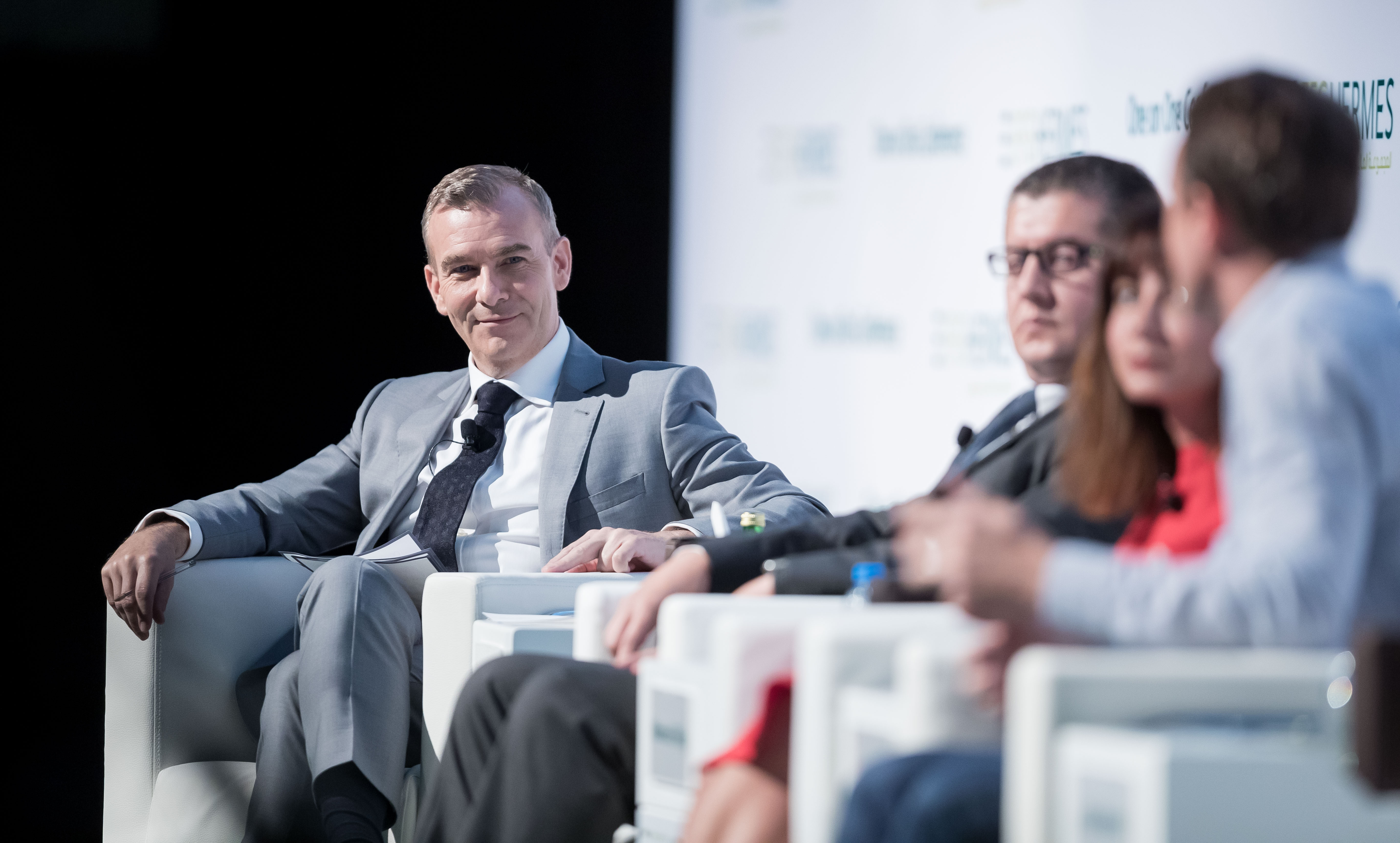 March 4, 2019
March 4, 2019
The New Consumer: How are companies winning and keeping customers in a tougher economic environment?
This post consists of notes from panel discussions at the 2019 EFG Hermes One on One conference in Dubai, UAE
The morning’s second panel centered on that classical hallmark of emerging markets: The consumer economy and how companies are leveraging technology to build out new infrastructure, create strategies, and develop new ways to meet their ever-evolving needs. The discussion was moderated by Manus Cranny, lead anchor at Bloomberg Daybreak: Middle East and Daybreak: Europe and featured three speakers:
- Mahmoud El Meligy, Chief Operating Officer, Dubai Refreshment, the PepsiCo bottler and distributor
- Sacha Poignonnec, Co-Chief Executive Officer & Co-Founder, Jumia
- Nada Amin, Vice President Consumer and Retail, EFG Hermes
Highlights of the discussion included:
Sacha Poignonnec, Co-Chief Executive Officer & Co-Founder, Jumia:
- Technology is just a tool … a way to achieve a goal. Consumers. make a purchase because they like the product, because they can save money or because we offer a convenient way of buying.
- We operate as a marketplace at the nexus between companies and consumers as well as importers and exporters and logistics players. E-commerce platforms are a great barometer for the economy because we work with everyone: Buyers, sellers, logistics, importers, and exporters alike. I can tell you there that businesses in many countries are confident in their outlook.
- Egypt and Nigeria are very resilient. We see a lot of growth in Kenya and then gems like the Ivory Coast and Tunisia. In the latter, you see sellers starting new brands, doing more importing, and starting up new products.
- Technology is changing advertising. With television, you could spend millions to target no one in particular and you have very few ways to measure your impact. It’s better to funnel spending into YouTube and other social media platforms where you can target a specific group for much less money and greater impact.
- Look at Nigeria: Young people there practically don’t know what television is. They watch YouTube, they watch online videos. They’re tomorrow’s consumers, and they just don’t watch television. If you’re a content company, how do you bring your content to the market in a way that is relevant to consumers and to advertisers?
- But while social media is a great channel, it will never be what we spend all our money on because it needs much more management. So there’s a lot of upside, but it needs more active management as a brand.
Mahmoud El Meligy, Chief Operating Officer, Dubai Refreshment, the PepsiCo bottler and distributor
- Technology has allowed us to be more efficient — to leverage data so we can use a smaller distribution fleet to deliver what our customers want when they most need it. Technology is becoming a vital element for companies that do a lot of fleet management or manufacturing.
- With more complex data analysis of consumer behavior we have a far better idea of what they want so it’s inevitable that technology is going to climb in importance for doing business.
- Ten or 15 years ago, we spent on television, the press and billboards. Today, it is increasingly about social media, where you can be extremely specific on demographic and geolocation data — and it is less expensive.
- The big exceptions on advertising are sporting events, where we know the size and composition of a television audience that cuts across the entire MENA region. The other exception, which is really specific to this region, is Ramadan, when you have a guaranteed captive audience right after the breaking of the fast.
- E-commerce is even going to change real estate. Malls were once 70-80% retail and 20% entertainment. In 10 years’ time, that’s going to start skewing the other way — online shopping is going to drive them to become more about entertainment — about experiences and food and beverage.
Nada Amin, Vice President Consumer and Retail, EFG Hermes:
- Investment in distribution has been a focal point for companies — they’re using it to access demand quickly by reading the market better and allowing drivers to connect faster with depots.
- The investment in capex has not reached its full and most robust form. We’re seeing signs of pickup in capex spending in Egypt, but in the GCC, most companies are reaping the benefits of existing investments.
- Where technology gets very interesting is in powering innovation for food and snack companies to match what consumers most want with the production process. It’s more about delivering new products that the market needs.
- In terms of advertising, most companies are turning away from above-the-line marketing and shifting toward online and social media launches. Smaller products create big waves on social media, especially with the under 30s.
- Social media is bringing down cost and making it easier to hit your audience in a more targeted way. Consumers talk a lot, even if they’re not sure what they want.
- Egyptian companies took a substantial hit to volumes after the late 2016 devaluation, but we’re now seeing the broad-based target for most companies being the return to historical high volumes.
- They’ve all become leaner on distribution, and we’re now seeing volumes recover even after significant price increases on the back of cost pressure. Either way, consumers have proven very resilient, particularly in Egypt.
- We see volumes coming back in Egypt and in the Gulf this year. Affordability has been a big issue for consumers across the region. Disposable income is lower — people are thinking week to week and less month to month. Packaging sizes have changed, even in the GCC, where we don’t usually see price changes on dairy and water.
